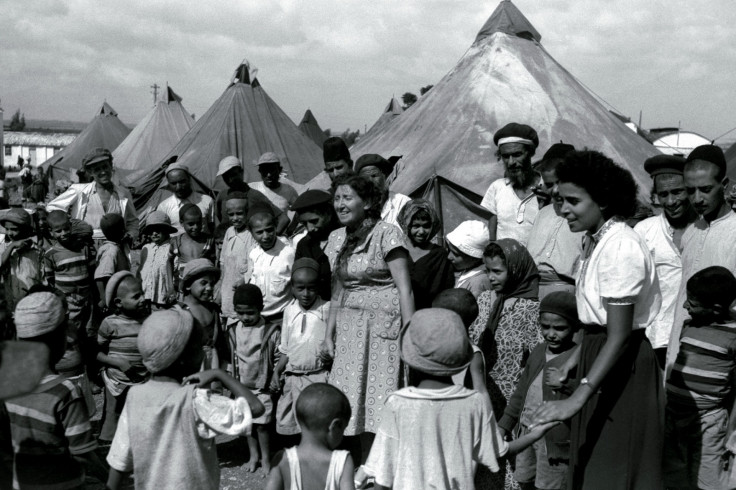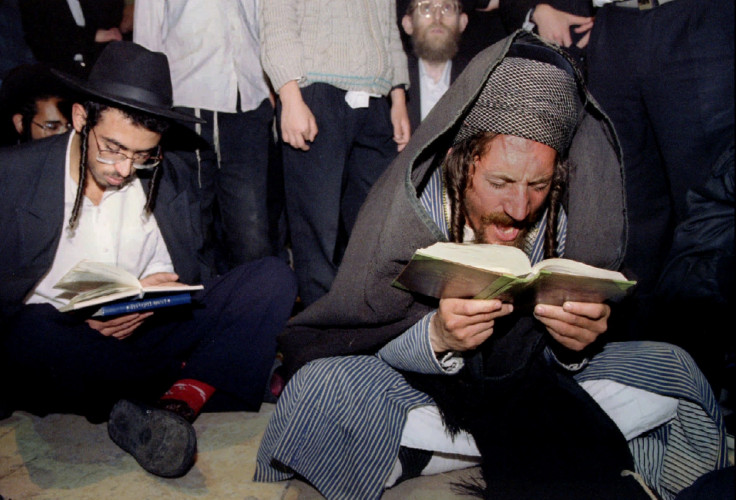Israel's lost children: New files shine no light on the fate of 1,000 'vanished' Yemenite babies
Families still claim that children of Arab Jewish origin were stolen and given to wealthy Azkhenazi couples.

The release of 200,000 classified files relating to the disappearance of 1,000 Yemenite Jewish children between 1948 and 1952 will bring no closure to those who claim that their children were kidnapped and put up for adoption to wealthy European Ashkenazi families in the earliest years of the Israeli state.
The Israeli State Archives published the documents – which were due to be sealed until 2031 – on Wednesday after years of campaigning by families and their supporters, dozens of which claim that they were told by hospital staff their children were dead only to discover that they were later adopted.
Although the case has got little coverage in the West, it has long captivated the Israeli public, with speculation that children of poor Sephardic or Yemenite Jews that had migrated to Israel from the Arab world were given over for adoption to rich Ashkenazi (Jews of European descent) families.
The scandal has arisen regularly since the 1960s, being subject to a regular committee of inquiries, most recently between 1995 and 2001, when the Cohen-Kedmi Committee reported that of 1,033 incidents, 972 of the babies had died and the fate of only 56 remained unknown.
More widely, the case ties into the ethno-political dynamics of Israel's six million-strong Jewish population, where positions of power and influence tend to be occupied by Ashkenazi rather than the Sephardi, who flooded into Israel from the Arab world after 1948.
The files released this week were those gathered by the Cohen-Kedmi Committee, which concluded that there was no organised effort to steal babies from the Yemenites and give them to the Ashkenazi back in the late 1940s and early 1950s. They were only released after 15 years of campaigning by the families of the children and their supporters, many of whom are now well into their eighties and nineties.
Haaretz, the left-leaning Israeli daily, claimed that the files revealed no 'smoking gun' of either an organised conspiracy or an effort to cover it up.
That was echoed by Tzachi Hanegbi, Minister of Regional Cooperation in the Knesset, speaking to IBTimes UK following the release of the files. "I don't think there was any organised political established [effort] to steal kids from their [families]," he said.
But Hanegbi admitted that for those families that were affected, issues remained. "The fact is that a thousand kids disappeared, there was no grave, there was no reason [given] for their deaths, there was no funeral, there was no body. This raises a lot of question[s] and causes a lot of pain," he said.
The Jerusalem Post recently highlighted the case of Zvi Amiri, a 63-year-old of Sephardic origin who grew up on a kibbutz to adopted Ashkenazi parents but later learned that his real parents were Sephardi Jews of Tunisian origin. His mother, Hanna Biton, had been told in 1948 that her son had died but instead he was put up for adoption.
In another case, a girl was given over for adoption in 1954 to a couple who survived the Holocaust after it was claimed the hospital could not find her father and her mother had left the country. The parents said they had no knowledge either of the girl's origin or the whereabouts of her real parents.
A document given to the Cohen-Kedmi Committee in 1952 said that the practice of adoption from hospitals, often facilitated by private brokers or the doctors themselves, was commonplace. "This was a case of unauthorised conduct by public hospitals in delivering children who were born within their walls to all kinds of people for the purpose of adoption," Attorney Drora Nehami-Ruth wrote.
"I don't want to expand on this, how easy it was to take advantage of the possibility of delivering children born outside of wedlock to people who would knock on the hospital doors in exchange for something."
Hanegbi told IBTimes UK that the government is encouraging those who think that they may have been put up for adoption between 1948 and 1954 to get DNA checks. He said that many of those effected had not wanted to do so in the past as their parents were still alive.
"Their parents really gave them a lot of love and a lot of attention and now most of the parents are dead. It is likely that they will no longer feel they will hurt their parents feelings [and] will come out and make DNA tests and we will see if there is any match," he said.
More broadly, he said that the release of the documents would end speculation that there had been a cover up. "There is no more hiding of information, there is transparency, all the details are out there and we will very soon be more knowledgeable about the documents," he said.
Who are Israel's Jews of Arab origin?

UN figures claim that more than 850,000 Jewish people left Arab countries after the declaration of the State of Israel in 1948, after which Egypt, Syria, Jordan and Iraq declared war on the young country.
The exodus marked the end of thousands of years of Jewish presence in cities such as Baghdad and Cairo, while Jews had formed communities in eastern Saudi Arabia even before the time of the Prophet Mohammed. Many moved to the state of Israel.
In some countries, however, small Jewish populations remain even to this day, including Yemen, Morocco and Syria, where a tiny Jewish community remained until as recently as November 2015.
In Israel, Jews of Arab origin are called 'Sephardic' or 'Mizrahi' while those of European descent are referred to as Azkhenazi.
It has long been claimed that in the early years of the Israeli state, Azkhenazi were given access to better jobs and housing than the Sephardim, who were relocated to outlying cities and poorer neighbourhoods.
© Copyright IBTimes 2025. All rights reserved.






















